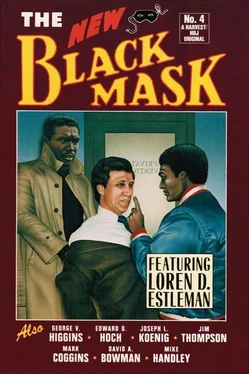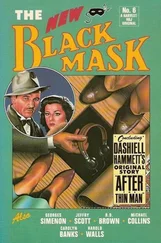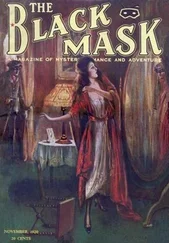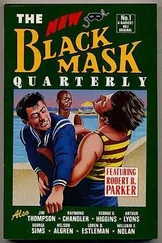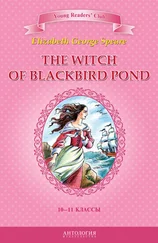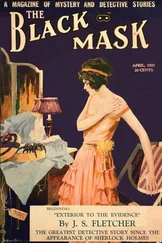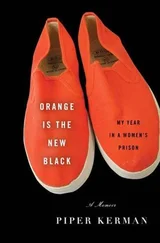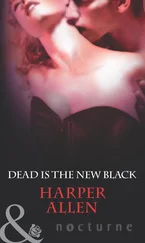Джордж Хиггинс - The New Black Mask (No 4)
Здесь есть возможность читать онлайн «Джордж Хиггинс - The New Black Mask (No 4)» весь текст электронной книги совершенно бесплатно (целиком полную версию без сокращений). В некоторых случаях можно слушать аудио, скачать через торрент в формате fb2 и присутствует краткое содержание. Город: New York, Год выпуска: 1986, ISBN: 1986, Издательство: A Harvest/HBJ book, Жанр: Детектив, на английском языке. Описание произведения, (предисловие) а так же отзывы посетителей доступны на портале библиотеки ЛибКат.
- Название:The New Black Mask (No 4)
- Автор:
- Издательство:A Harvest/HBJ book
- Жанр:
- Год:1986
- Город:New York
- ISBN:978-0-15-665483-8
- Рейтинг книги:3 / 5. Голосов: 1
-
Избранное:Добавить в избранное
- Отзывы:
-
Ваша оценка:
- 60
- 1
- 2
- 3
- 4
- 5
The New Black Mask (No 4): краткое содержание, описание и аннотация
Предлагаем к чтению аннотацию, описание, краткое содержание или предисловие (зависит от того, что написал сам автор книги «The New Black Mask (No 4)»). Если вы не нашли необходимую информацию о книге — напишите в комментариях, мы постараемся отыскать её.
The New Black Mask (No 4) — читать онлайн бесплатно полную книгу (весь текст) целиком
Ниже представлен текст книги, разбитый по страницам. Система сохранения места последней прочитанной страницы, позволяет с удобством читать онлайн бесплатно книгу «The New Black Mask (No 4)», без необходимости каждый раз заново искать на чём Вы остановились. Поставьте закладку, и сможете в любой момент перейти на страницу, на которой закончили чтение.
Интервал:
Закладка:
NBM: Why do you write short stories? With your writing schedule they would seem to be a distraction and not worth your time.
Estleman: I enjoy them; they’re a challenge. They are certainly a change of pace when I have finished a long project like a novel. I enjoy writing short stories. And yet, probably when you talk about intensive work, a short story is exceedingly more difficult to write than a novel. It’s kind of like making love on an elevator; you have to know where you’re going from the beginning. You have to nail your character down in a couple of lines and move on from there — keep it in constant movement. It’s been said that those who can’t write poetry write short stories, and those who can’t write short stories write novels. I don’t know about the poetry part because it’s been twenty, twenty-five years since I’ve tried poetry. But I do know that short stories are a challenge.
NBM: Do you ever worry, as Hemingway might put it, that the juices might dry up?
Estleman: Not consciously, but certainly when I’m between books and more than a couple of weeks — well, let’s be honest — when more than about two days pass, I start to climb the walls. There’s always that little niggling doubt somewhere in the back of my mind that maybe I’ve lost it and can’t do it anymore, and I have to glue myself to the typewriter and get back in the harness and prove to myself that I can. That may be a valuable asset.
NBM: In nine years of book publishing you’ve established yourself in the first rank of writers in two genres, if you also count Westerns, both of which are becoming more and more respectable.
Estleman: Very good people have been working in the Western field, and I fear that the average reader hears so much about Louis L’Amour that he’ll pick up a L’Amour book and think that this is as good as it gets. L’Amour writes well, not as well as he used to, but he still writes well. But there are people who are doing classic American literature in that form who are not as well known.
NBM: Aside from talent, which is obvious, to what do you attribute the success you have enjoyed in a relatively short professional career? A lot of people, presumably even talented people, have books that they can’t get published.
Estleman: Sure. Those stories are all over the place. Both world and American literature would be immeasurably richer if a lot of books that never were published had gotten to the right people. I think that many fine, fine writers have been and are being overlooked. I know a few myself. I think the real danger that we face now is the mania for categorization. The average publisher is afraid to touch a book that doesn’t fall into an acceptable pigeonhole. They don’t know how to present and how to handle books otherwise. I think that’s going to be a problem for a while. I had a realistic approach from the beginning. I knew that the kind of writing I wanted to do would be the kind that could be popular. And, also, I thought that I could maintain my integrity, and I feel that I have by doing the best that I am able to do. At the same time I’m lucky enough that the kind of writing I’m most comfortable with is the kind that tends to be the most popular. Yet I’ve never really gone with the trends. If I see a trend developing, I almost immediately head in the opposite direction. That’s how it was with Amos Walker. When I started Amos Walker, there were no other major private detective figures out there except Bob Parker’s Spenser, and when I first started doing Westerns, they were at their nadir both critically and popularly. I guess there was a certain amount of luck there. After my first book, I landed an excellent agent who I still have and who can speed things up immeasurably because he knows to whom to send a book. I’ve had a series of very good editors along the way who have well understood what it is I’m trying to do and have known how much to take part and when to back off and defer to me. I may be more comfortable and more knowledgeable as a result of these circumstances, and that is a valuable asset. At the same time, I look around and I see extremely good, Nobel prize-quality writers who are just not being published.
NBM: You said that the writers whose works have had the most profound influence on your own writing are Edgar Allan Poe, Jack London, and Raymond Chandler. How big a factor is the writing of others in your work? Or to put it differently, how dependent are you as a writer on literary history?
Estleman: I think every writer is definitely dependent on those who have gone before us. Both on their mistakes and on the trail that they’ve blazed. I can’t pinpoint any one person who has been the greatest influence on me. They have all been influences to some degree. And that’s not a bad thing. It’s a good place to start as long as you can move on from there and advance the cause that these other writers started. I read a great deal, and I make it a practice not to read writers who do not themselves read. We read for the same reason a baseball player looks at a videotape of another player in action. Certainly a pitcher does it to sec how his opponent works and to see if he can better it. You also read to know what’s going on around you; and it’s good for the soul. Two things can make you sit down and write. One is reading a book that is really bad, thinking I could do much better; the second is reading a book that’s very good. It makes that old fear work up, and you think maybe I better get back in the harness here and establish myself.
NBM: Television seems hungry now for detective series, especially hard-boiled detective series. These shows haven’t been in vogue for about fifteen years. Why the interest all of a sudden?
Estleman: It would have to do with our continuing interest in crime. Crime is something that happens to people you’ve never heard of, except when it happens to your next-door neighbor, or to people in your family, or to you and me. As long as we are potential victims, the interest in crime fiction is going to continue — certainly in detective fiction in which the criminal gets caught, because it’s something you don’t see too much in everyday life. It’s definitely going to continue to grow as time goes by. The reason private detectives themselves are of interest now is this American revolutionary concept. At the moment, I think people are sick and tired of police, and they want to see something a little less structured than police procedure. They want to see basically ordinary men of an extraordinary makeup doing things the police can’t because of the Bill of Rights, the Supreme Court, and the inertia of modern American law enforcement.
NBM: So you don’t think that detective fiction or detective material is in danger of being oversold, as Donald Westlake has suggested?
Estleman: Probably not. I don’t think that it can be oversold. I think that there’s going to be a lot of bad detective fiction written; there always has. And along the way there’s going to be a lot of good fiction. But as far as being oversold, I don’t see that happening.
NBM: You’re now thirty-three years old. Do you anticipate with tranquility another thirty years of writing fiction?
Estleman: Oh, yes. That’s what I’ve been doing so far, and that’s what I’ve always wanted to do. I don’t see that changing. I can’t tap-dance or sing. So I think I’ll stick with the talent I have. I do hope that I’m going to continue to get better, and I hope never to sell out.
Loren D. Estleman
Blond and Blue
“The following story is based on an actual incident, which at last word was still unresolved,” Loren Estleman writes about “Blond and Blue.”
Since the appearance of his story “Bloody July” in NBM 1, Mr. Estleman has been a busy writer. In October 1985, Mysterious Press published his second novel about professional hit man Peter Macklin, Roses Are Dead; in November, Doubleday published Gun Man, “a serious study of an authentic Western gunfighter”; and in March, Houghton Mifflin will publish a new Amos Walker novel, Every Brilliant Eye.
Читать дальшеИнтервал:
Закладка:
Похожие книги на «The New Black Mask (No 4)»
Представляем Вашему вниманию похожие книги на «The New Black Mask (No 4)» списком для выбора. Мы отобрали схожую по названию и смыслу литературу в надежде предоставить читателям больше вариантов отыскать новые, интересные, ещё непрочитанные произведения.
Обсуждение, отзывы о книге «The New Black Mask (No 4)» и просто собственные мнения читателей. Оставьте ваши комментарии, напишите, что Вы думаете о произведении, его смысле или главных героях. Укажите что конкретно понравилось, а что нет, и почему Вы так считаете.
